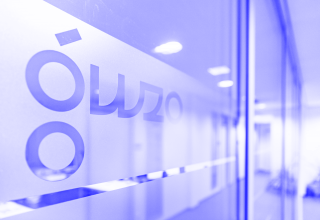Department in development
Knowledge and Participation
Česká verze níže.
The department »Knowledge and Participation« examines the multifaceted and sometimes tense relationships between academic and non-academic knowledge. The focus is on civic participation in knowledge production and science in Central and Eastern Europe in the present and the past. Societies in this region were and continue to be shaped by diversity and migration but are also affected by marginalisation and experiences of violence directed at various groups.
The department is headed by Dr. Michal Frankl.
Recently, citizen science has attracted attention as a way to democratise science. At times, it is (mis)understood to be a mere means of collecting data or a sophisticated pastime. However, the diverse forms of participatory research are increasingly able to challenge established boundaries. How has the relationship between academic and non-academic forms of knowledge evolved over time? Beyond this, in an age of assumed loss of expert authority, do we still need a clear demarcation between scholars and non-experts? Or, indeed, is a clear line perhaps more important today than ever before? Where do the opportunities and risks of science opening its doors lie, especially when it comes to topics that are key to the self-perception of individuals, groups and society at large?
The department places a special emphasis on actors from marginalised groups in the present and in the past. Amongst other things, it asks how knowledge produced »on the margins« is articulated, transferred, heard, stored or interpreted. In addition, it pays crucial attention to the influence of new digital tools on the production of scientific knowledge. Digital technologies, especially artificial intelligence (AI), are changing the way knowledge is created and received.
Focusing on questions and drawing on methods from the humanities, the department works across and between disciplines and aims to be a methodological and theoretical laboratory for the analysis of civic knowledge and participation. Its perspectives intersect with several other of the GWZO’s research strands, especially the subject areas »Knowledge and Truth« (Department II), »Circulation of Knowledge« (Department III), and the »Knowledge« Working Group.
Oddělení »Vědění a participace«
Oddělení »Vědění a participace« zkoumá mnohostranné a někdy též napjaté vztahy mezi akademickou a mimoakademickou produkcí vědění. Zaměřuje se na podíl na vědění a vědě v dějinách a současnosti střední a východní Evropy. Zdejší společnosti se vyznačovaly a vyznačují rozmanitostí a migrací, stejně jako marginalizací a násilím proti různým skupinám.
Oddělení vede dr. Michal Frankl.
S občanskou vědou se v poslední době pro její demokratizační potenciál spojují vysoká očekávání. Ovšem zároveň je někdy chápána (a nepochopena) jako pouhý nástroj pro sběr dat nebo jako náročná forma trávení volného času. Tyto a další podoby participativního bádání zároveň ohledávají etablované hranice. Kde je předěl mezi vědeckými a nevědeckými formami produkce vědění a jak se tento vztah historicky proměňoval? Potřebujeme vůbec v době obecně uznávaného oslabení autority expertů oddělení mezi vědou a laickou společností? Nebo naopak: je toto ohraničení dnes nezbytnější než kdykoli předtím? Kde jsou, zejména u témat týkajících se sebepojetí lidí, skupin a společností, rizika takového otevření?
Pozornost oddělení se zaměřuje zejména na aktérky a aktéry z marginalizovaných skupin v minulosti a současnosti. Ptá se mimo jiné, jak je vědění »na okraji« artikulováno a sdíleno, slyšeno, uloženo a interpretováno. Zároveň se kriticky věnuje vlivu nových digitálních nástrojů na produkci vědeckých znalostí. Digitální technologie, v čele s umělou inteligencí, mění utváření a recepci vědění.
Díky sídlu v Praze je oddělení »Vědění a participace« spojnicí s českými a dalšími středo- a východoevropskými evropskými vědci a vědkyněmi, ať již pracují v akademických institucích nebo bádají ve svém volném čase. Navazuje na dlouholetou úzkou spolupráci se společenskovědními ústavy Akademie věd ČR. Podporuje spolupráci v regionu, v němž participace a občanská věda mají potenciál pro další rozvoj
Based in Prague, the department »Knowledge and Participation« constitutes an interface with Czech and other Central and Eastern European scholars and citizens who create new knowledge in their free time. It builds on many years of close collaboration with a wide range of humanities institutes at the Czech Academy of Sciences. In this way, it supports collaboration with and in a region where participation and citizen science – especially in the humanities – may still be further expanded.

